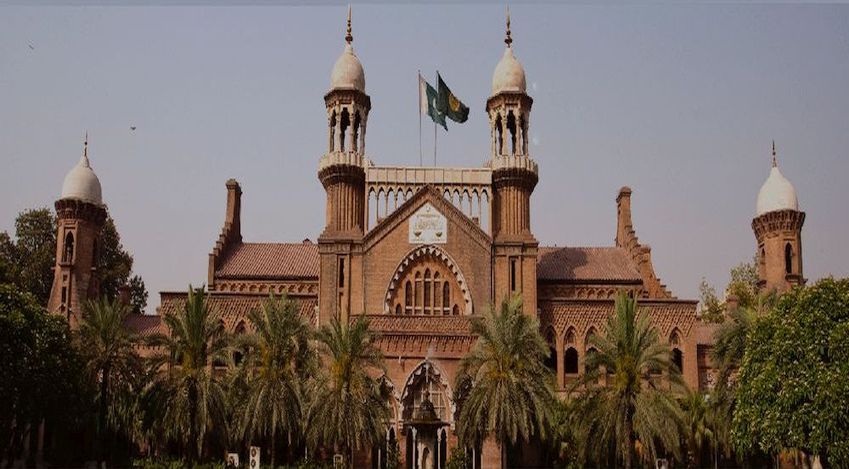The Hague Convention does not apply as Pakistan and Canada have not reciprocally accepted each other’s Accession --- Lahore High Court, Lahore
Islamabad 14-02-2025: In a significant ruling on international child custody and parental abduction, the Lahore High Court (LHC) dismissed a habeas corpus petition filed by father, who sought the return of his three children to Canada after their alleged wrongful removal by their mother. The Court directed the Family Court, Lahore, to resolve the custody dispute while ordering an inquiry into allegations of fraud and misrepresentation by the mother in securing a Guardian Certificate in Pakistan.
The Petitioner and Respondent, both Pakistani nationals, were married in UAE in 2005 and later moved to Canada. In November 2023, the mother allegedly removed the three children from Canada to Pakistan, despite a Canadian Court order prohibiting their relocation. The petitioner, claiming this act amounted to international parental child abduction, filed a constitutional petition under Article 199 of the Constitution of Pakistan, seeking their immediate recovery and return to Canada under the Hague Convention on International Child Abduction, 1980.
The Lahore High Court considered multiple legal questions, including:
- Since Pakistan and Canada have not mutually recognized each other’s accession, the Hague Convention does not apply between them.
- The Family Court in Lahore issued a Guardian Certificate to the mother in 2021, allegedly based on misrepresentation, while two of the children were still in Canada with their father.
- The Lahore High Court reaffirmed that habeas corpus petitions for child custody should be entertained only in exceptional cases, and the Family Court remains the appropriate forum for custody disputes.
- The Court ruled that foreign custody orders are not automatically binding in Pakistan and must be evaluated in light of domestic child welfare laws.
Mr. Justice Tariq Saleem Sheikh, while delivering the judgment, held that:
- The Hague Convention does not apply to the present case as Pakistan and Canada have not reciprocally accepted each other’s accession.
- The mother’s act of removing the children from Canada violated a Canadian Court order and amounted to potential fraud.
- The Family Court is the proper forum for determining the children’s welfare and custody rights.
- The Family Court must conduct an inquiry under Section 476 of the Cr.P.C. against the mother for allegedly misrepresenting facts while obtaining custody orders.
- The children will remain with the mother in Pakistan until the Family Court resolves the matter, but the father must be given reasonable parenting time.
- Neither party can take the children out of Pakistan without prior approval from the Family Court.
The judgment cited various Supreme Court of Pakistan and international precedents on child custody and international parental abduction, including:
- Qurat-ul-Ain Vs. SHO, Gujrat (2024 SCMR 486): Lahore High Court jurisdiction under Article 199 should be used sparingly in child custody cases.
- Office of the Children’s Lawyer Vs. Balev (2018 SCC 16, Canada): The habitual residence of a child is a crucial factor in custody disputes.
- McKee Vs. McKee (1951 AC 352): Foreign custody orders must be considered but are not automatically binding.
- Mirjam Aberras Lehdeaho Vs. SHO, Lahore (2018 SCMR 427): Fraudulently obtained custody orders can be annulled by Pakistani Courts.
This ruling sets a major legal precedent in cross-border child custody disputes involving Pakistan. It reinforces that:
- The Hague Convention will not apply unless Pakistan has reciprocal agreements with the foreign country.
- The Family Court is the competent forum for deciding child custody matters, even in international disputes.
- Foreign Court orders will be examined in light of Pakistani child welfare laws.
- Fraud in obtaining custody orders will be strictly scrutinized and could lead to criminal action.
With international parental child abductions on the rise, this case highlights the legal complexities surrounding cross-border custody battles and the limitations of international treaties when signatories have not mutually recognized each other’s jurisdiction.
Next Steps:
- The Petitioner (father) must now pursue his case before the Family Court in Lahore.
- The Family Court is directed to complete proceedings within two months on a day-to-day basis.
Fraud allegations against the mother will be investigated, and potential legal action may be taken.
Powered by Froala Editor








